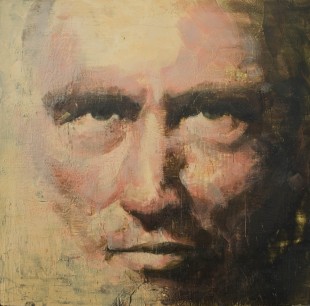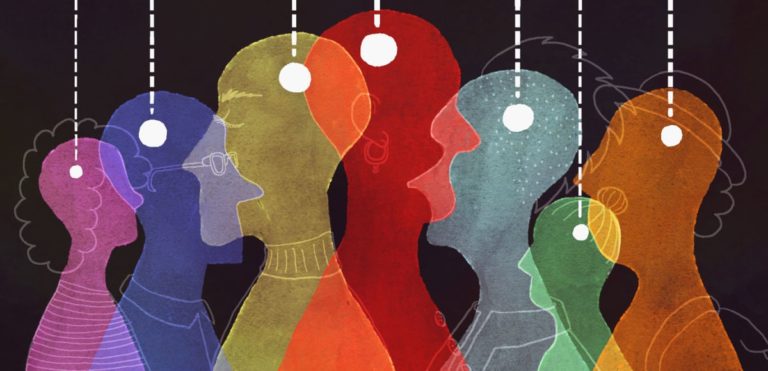It is a measure of how poll-driven politics has become that few politicians stick their neck out even when there is a compelling national and moral interest to do so. Witness the recent provincial election in Quebec, where federalists sat on their hands when some of the most provincial views (in the worst sense of that word), occasional bigotry and anti-minority positions were openly expressed.
Actually, never mind the Quebec election. Witness such behaviour over the past 28 years, where federalist politicians in Quebec and the rest of Canada have been content to let Quebec separatists get away with such nonsense.
I note “28 years” because that’s how long it’s been since Pierre Trudeau left office (in 1984). He did so after his famous walk in the snow, and this after battling Quebec separatists to a standstill and then into defeat in the 1980 referendum.
Trudeau was—to be blunt, mostly a failure. His economic program consisted of me-too interventionism of the sort popular in the postwar world. Such thinking reached its apogee in the 1970s, but not before almost killing a number of Western economies, those in Canada and the United Kingdom included.
His foreign policy, based as it was on a romantic preference for overdone state interventionism, is why he could chum with the repressive Fidel Castro and practice studious neglect while Chairman Mao throttled his own people with yet another five-year plan, collectivization and the Cultural Revolution.
Still, one part of Trudeau’s record that deserves praise was his stance on individual rights. With the obvious and duly noted exception of the War Measures Act, Trudeau was at least a classic liberal when it came to some matters that involved individuals (so long as they were in Canada and not Cuba, China or the Soviet Union). As much as Trudeau liked “collective action” when economic questions were in play, he disliked that same collective impulse in equal measure when other personal freedoms were at stake.
Thus, from women’s rights to an early foray into reforming reserves (dropped, regrettably, when collectivist native leaders opposed him), and on to language matters, Trudeau understood that governments could greatly harm basic civil rights—say, to speak and write in whatever language one chooses.
Trudeau understood, as a self-described liberal in both the classic and modern sense (though the latter identity often trumped the former), that a Canada such as he imagined it was hampered when one provincial government could act as if it were governing Franco’s Spain and not a province in North America.
That Quebec’s separatists were never as cosmopolitan as they fancied themselves was made obvious by the first bit of the reactionary legislation they introduced. Bill 101 was one of the first major attacks on the English and the English language in Quebec and set the pattern for the future.
Unlike today’s political leaders across the political spectrum, federal and provincial, Trudeau willingly sparred with the separatists and seemed to relish in the opportunity. Today, too few federalists call Quebec’s separatist out on the falsity of their historical accounts.
Writing in 1991 in a small booklet entitled Fatal Tilt: Speaking Out About Sovereignty, Trudeau reminded readers that, contrary to the myth created and then perpetuated by the sovereigntists, a majority of Quebec’s politicians endorsed the repatriation of the British North America Act and the creation of the 1982 constitution.
With reference to then-Premier and PQ leader Rene Levesque’s intransigence and opposition in 1982 in constitutional negotiations, Trudeau wrote the following: “Not surprisingly, the federal government and nine provincial premiers chose to proceed, supported in that course by 71 of 75 members of Parliament elected from Quebec, and by 38 of the 108 deputies elected to Quebec’s National assembly.” That, wrote Trudeau, constituted “a total weighted support of 65 per cent of all elected representatives from ‘la belle province.’”
Trudeau also corrected another historical myth. He pointed out how the polls in Quebec in 1982 showed a majority of Quebecois also supported his stance, and not that of the provincial separatists.
The late Prime Minister successfully fought separatism because he was unafraid to call out Quebec separatists and show them up for the narrow-minded, anti-individual, rights-suppressing ideologues that they were.
He wasn’t the only public figure in that age that showed contempt for Canada’s would-be wrecking crew. Novelist, commentator and satirist Mordecai Richler regularly skewered Quebec’s sovereigntist movement and its otherworldly paranoia.
Richler’s most cutting attack—and most embarrassing one for separatists given that Richler showed them up in front of a more worldly audience.—came in a now-famous 1991 New Yorker article. In it, Richler catalogued the anti-liberal absurdities of Quebec’s language laws.
The reaction was predictable: some separatists accused him of being a “foreigner” who didn’t belong, thus foreshadowing Jacques Parizeau’s “ethnics-lost-us-the-referendum” bluster in 1995.
In the 1970s, 1980s and even as late as 1995, picking on the English might at least get you embarrassed in Manhattan. Picking on ethnics would end your political career. Today, similar comments produce nothing, at least from the political class.
During the recent election, Prime Minister Stephen Harper was mute and pragmatic to a fault. Pierre Trudeau’s approach would have been different. He would have sent a few verbal barbs the separatist way; he would have mocked how Marois the “separatist” demanded more goodies from Ottawa, and yet simultaneously ran away from the referendum issue by telling voters if they really wanted one, they could initiate it.
Trudeau, I imagine, would have flown to France during the recent Quebec election to have dinner with the French president, cameras in tow. His message would have been clear: “I can show up in Paris and sup at the highest level and will again, long after you separatists flounder once again, which you invariably will.”
As for provincial leadership, forget it. No sooner did the Parti Quebecois win their minority, than Alberta premier Alison Redford sent soft cooing sounds about how she hoped to find common ground with Quebec. She even made a point of saying how very proud she was “of the fact that we are a bilingual nation.”
Except that Quebec in particular is not. Quebec’s political class has spent the last 35 years since Bill 101 was passed in 1977, adding to and reinforcing such discrimination. They have used the notwithstanding clause time and again to enforce the Quebec government’s tread-marks on non-Francophones.
Even Danielle Smith, Alberta’s Wildrose leader, felt the need to try and, find some common ground with Quebec separatists by pointing to increased possibilities for decentralization. Smith is not a Western separatist. But vis-à-vis PQ leader Pauline Marois, Smith should have just rolled her eyes at the prospect of another PQ Quebec premier, who will invariably demand not just more “power” transfers but money transfers from Ottawa. Thanks to how federal transfers work, that will mean ever-more cash from taxpayers in Ms. Smith’s home province of Alberta.
Perhaps the best example of how little leadership any politician has shown vis-à-vis the separatists came two years ago. Recall that in September 2010, in an act of spinelessness, Parliament voted to chastise Maclean’s magazine. That was because the magazine had the audacity to point out how Quebec is rife with corruption. They did so despite the how even Quebec City Member of Parliament, independent MP André Arthur, argued Maclean’s was correct about its assertion.
During Trudeau’s day, no self-respecting federal Parliament would have humoured the separatists by voting for a separatist-induced motion that chastised the media for reporting what everyone already knew—Quebec has more than a few corruption problems.
Just as bad, and also a failure of leadership, was Rogers Publishing, which owns Maclean’s. It felt the need to offer an apology. “On behalf of the company, we sincerely regret any offence that the cover may have caused” wrote company president Brian Segal.
Right. And try imagine the publisher of the New Yorker or Richler’s book publisher, offering such an abject, unnecessary and humiliating apologia for his tart criticisms. It didn’t and never would have happened.
Richler aside, it is humorous in a telling sort of way, that the Parti Quebecois still understands who the most dangerous federalist was in Canada. That’s why in its advertising, the Parti Quebecois dredged up Pierre Trudeau images to try and rile up Quebecois.
As pathetic as was the PQ’s need to drag in Canada’s 15th prime minister from the grave for political ends, the action demonstrated grudging respect for Trudeau. Quebec separatists understand that unlike today’s politicians, Trudeau was—and his legacy remains, their most potent foe.
–
Mark Milke is the editorial board chair of C2C Journal







